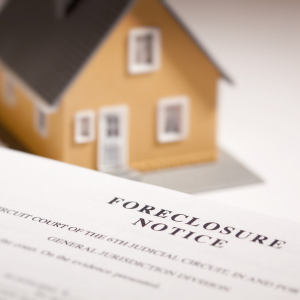
How Do Short Sales Work in Texas?
In Texas, a short sale happens when a homeowner sells their home for less than the mortgage amount. This is an option when facing financial difficulties, providing an alternative to foreclosure. The lender must agree to the sale since it accepts less than the amount owed on the mortgage.
What is the process for initiating a short sale?

To begin a short sale, a homeowner must demonstrate financial hardship to the lender. This normally entails submitting financial documentation such as tax returns and a letter outlining the issue. The homeowner then lists the property with a short-sale specialist. When an offer is made, it is submitted to the lender along with the hardship papers. Before accepting the transaction, the lender thoroughly evaluates everything and may do their evaluation.
Can anyone qualify for a short sale in Texas?
Not all Texas homeowners qualify for a short sale. Qualification includes demonstrating financial hardship and obtaining lender permission. Financial hardship encompasses job loss or medical issues that impair the ability to pay the mortgage. Borrowers must meet strict requirements set by lenders to qualify.
Differences in Control Between Short Sales and Foreclosures
The primary distinction between short sales and foreclosures is control over the transaction. The homeowner has a larger role in a short sale, while the lender is responsible for most foreclosures.
Who holds more decision power in a short sale?

A short sale gives the homeowner greater decision-making authority than a foreclosure. While lender permission is required, the homeowner can choose offers, negotiate, and participate. This involvement can assist in mitigating some of the financial damage associated with foreclosure.
How does foreclosure impact homeowner control?
Foreclosure eliminates much of the homeowner’s control. When a lender initiates foreclosure owing to missed payments, an involuntary process to seize the property begins. The homeowner loses decision-making authority, and the lender handles the property’s sale to recoup losses, damaging the homeowner’s credit and future choices.
Financial Implications of Short Sales and Foreclosures
When deciding between a short sale and a foreclosure, it is critical to understand their financial implications. Both might impact your credit score and result in tax ramifications.
Impact on Credit Score
Choosing between a short sale and a foreclosure affects your credit. A short sale can lower your credit score by 85 to 160 points, and a foreclosure can lower it by up to 300 points. The actual amount varies depending on your credit history and bills.
Tax Consequences

Tax concerns are another important consideration. Sometimes, the forgiven debt from a short sale is taxable income, resulting in extra taxes. However, the Mortgage Forgiveness Debt Relief Act may contain some exclusions. Consulting with a tax adviser can help clarify things.
Financial Hardship and Recovery
A short sale frequently indicates financial distress but can allow for a faster recovery than foreclosure. Rebuilding credit and obtaining loans after a foreclosure may take longer than after a short sale. Thinking about these long-term implications aids with financial planning.
Deficiency Judgment in Foreclosure
If a foreclosed home sells for less than the mortgage, you may still owe the difference under a deficiency judgment. Knowing about this potential extra debt is critical when facing foreclosure.
Legal Aspects of Short Sales and Foreclosures
Understanding the legal aspects of short sales and foreclosures requires knowledge of homeowners’ rights and safeguards, particularly in states like Texas.
Homeowners’ Rights and Legal Protections
Homeowners facing foreclosure have rights like receiving notifications and negotiating with lenders. Each state has laws that protect homeowners, and reviewing them can help protect your interests.
Legal Advice for Short Sale

Legal guidance is beneficial when considering a short sale. An attorney can assist with lender negotiations and determine whether they are involved in accepting or rejecting a short sale bid.
Stopping Foreclosure Proceedings
There are alternatives to avoid foreclosure, such as loan modifications, bankruptcy, or obtaining an injunction due to lender errors. Professional legal guidance can help you choose the best course.
Negotiation with Lenders
Negotiating with lenders might help a short sale or postpone foreclosure. Showing financial difficulties and incapacity to pay may result in better terms or delays.
Market Conditions Affecting Short Sales vs. Foreclosures
The health of the real estate market has a significant impact on how short sales and foreclosures unfold. When the housing market slows, distressed property sales generally increase. Understanding these conditions is essential for making educated decisions.
Real Estate Market Conditions

Short sales and foreclosures are becoming more widespread in a deteriorating real estate market. Homeowners may struggle to make mortgage payments, causing banks to consider options such as short sales or foreclosures. Short sales, which take a shorter time than foreclosures, may be preferred by lenders in these cases.
Financial Recovery After Foreclosure
Significant variations exist between short sales and foreclosures, particularly regarding financial recovery. Foreclosure can drastically ruin your credit, making future loans difficult to get. On the other hand, a real estate short sale may have a less negative influence on your credit because credit agencies typically view them more favorably.
Potential Challenges in Buying Short Sale or Foreclosure Properties
Purchasing distressed homes, whether through a short sale or a foreclosure, presents unique issues that require careful consideration and planning.
Buying a Short Sale
When purchasing a short sale, patience and good negotiation skills are required. You must negotiate with lenders to agree on a price less than the outstanding mortgage balance. To manage complex paperwork and protect your interests, get legal help for short sales.
Buying a Foreclosure

The lower pricing of bank-owned properties during foreclosure auctions can make them appealing. However, investing in foreclosures necessitates extensive research and risk analysis. These properties may contain hidden liens or need costly repairs.
Negotiating with Lenders
Short sales and foreclosures both need successful negotiation with lenders. Understanding the lender’s point of view can help you gain influence when negotiating conditions for distressed property transactions.
Home Auction Alternatives
Considering house auction alternatives may provide opportunities to purchase properties at a lower cost than the market value. However, these alternatives have their own dangers and rewards, which must be carefully considered.
Seller Motivations Behind Choosing Short Sale Over Foreclosure
When homeowners suffer financial difficulties and struggle to make mortgage payments, they should be aware of their choices, which include short sales and foreclosures. A short sale allows homeowners to sell a distressed property for less than the mortgage debt if the lender approves. This can aid those who want to avoid foreclosure and its serious implications.
Short Sale vs. Foreclosure: Key Differences

- Short Sale: Allows negotiation with the lender to sell the home for less than what’s owed. It’s a way to manage mortgage default consequences more proactively.
- Foreclosure: This happens when the lender takes legal action to repossess the home due to missed payments, which can lead to a deficiency judgment against the borrower.
Benefits of a Short Sale
- Avoids Foreclosure: Helps prevent the severe impact on credit scores that foreclosure can cause.
- Reduces Financial Burden: Lowers mortgage debt higher than the home’s current value.
- Mental Relief: Reduces stress associated with ongoing financial difficulties.
Factors Influencing the Choice
- Underwater Mortgage Solutions: Homeowners whose property is worth less than their mortgage might choose a short sale.
- Lender’s Role: A supportive lender can make this process easier, providing an alternative to foreclosure.
For more guidance, consulting with real estate or financial experts can provide advice tailored to your situation.
Role of Lenders in Short Sales and Foreclosures
Lenders have a significant role in both short sales and foreclosure proceedings, shaping outcomes for homeowners.
The Short Sale Process
- Lender Approval: Required to sell the property at a reduced price, needing proof of financial distress.
- Negotiating with Lenders: Successful negotiation can result in the lender accepting less than what is owed.
- Real Estate Short Sale Management: Involves listing, marketing, and selling the property according to the lender’s guidelines.
The Foreclosure Process
- Legal Implications: It begins with a notice of default and can lead to court action, in which the lender returns the home.
- Stopping Foreclosure Proceedings: Early engagement with the lender can sometimes stop foreclosure, allowing for a short sale or loan modification.
- Deficiency Judgment: After foreclosure, lenders may pursue this to recover any unpaid balance not covered by the sale.
Impact on Community from Short Sales and Foreclosures

Short sales and foreclosures greatly impact communities, typically affecting neighborhood property values and financial stability. These distressed property transactions frequently result in homes selling for less than their market worth, contributing to a drop in property values throughout the community. This might lead to homeowners owing more on their mortgage than their properties are worth.
Foreclosures can hurt communities by potentially increasing crime rates and lowering municipal revenues, making neighborhoods less appealing. Short sales may have a smaller impact because they are usually completed quickly, giving homeowners greater control over the sale process. However, both methods can harm a person’s credit score, slowing financial recovery and jeopardizing future borrowing.
Alternatives to Avoid Foreclosure
Homeowners suffering financial difficulties have numerous options for avoiding foreclosure that can safeguard their rights and aid in financial rehabilitation. Knowing these possibilities can help manage underwater mortgages and improve one’s circumstances.
- Foreclosure Prevention Programs: Many lenders offer repayment plans or temporary leniency programs to help homeowners manage financial hardships.
- Loan Modification vs. Short Sale: A loan modification lowers monthly payments by changing the terms of a mortgage, while a short sale allows selling the property for less than owed. Each choice has benefits and drawbacks.
- Underwater Mortgage Solutions: For those who owe more than their home’s value, refinancing through federal programs or seeking expert advice can be helpful.
- Homeowners’ Rights: Knowing legal rights can empower homeowners to negotiate better terms with lenders during foreclosure.
Exploring these alternatives can guide individuals toward financial recovery while helping preserve homeownership.
FAQs:
What is the main difference between a short sale and a foreclosure?
A short sale happens when a homeowner sells their property for less than what they owe on the mortgage, with the bank’s approval, to prevent foreclosure. In foreclosure, the lender takes legal steps to repossess and sell the home after the homeowner fails to pay the mortgage.
How long does a short sale typically take to close?
Short sales can take up to one year to finish due to factors like lender approval and buyer negotiations.
What role does the lender play in a short sale?
In a short sale, the lender needs to approve the sale price since it is lower than the mortgage’s owed amount. The lender’s role is essential as they may negotiate terms or consider specific offers.
What are the tax implications of a short sale?
Debt forgiven in a short sale might be taxable income. However, homeowners might qualify for exemptions under certain conditions, so it’s wise to consult a tax expert.
What are homeowners’ rights during foreclosure proceedings?
Homeowners have rights during foreclosure, including getting proper notification of actions and the chance to explore options like loan modification or short sale.
Are there any alternatives to home auctions in foreclosure?
Yes, alternatives include short sales, deeds in lieu of foreclosure, and loan modifications to prevent the home from being auctioned.
How do financial hardships influence a short sale decision?
Financial hardships often lead homeowners to choose a short sale to avoid foreclosure and reduce credit impact. It’s a way to handle an underwater mortgage.
Can a deficiency judgment occur in a foreclosure?
In some states, lenders can seek a deficiency judgment to recover the remainder of the loan after a foreclosure sale. Homeowners should get legal advice to understand their responsibilities.
Key Insights
- Short Sale vs. Foreclosure: Homeowners must know the difference between short and foreclosure sales. A short sale is negotiated with the lender, while foreclosure is forced.
- Foreclosure Alternatives: Options such as deed in lieu of foreclosure, home auction alternatives, and comparing loan modification to short sales offer pathways for those in financial distress.
- Preforeclosure and Auction: During preforeclosure, properties might go to auction if proceedings aren’t stopped. Acting early can provide more solutions for homeowners.
- Investing in Foreclosures: Investors often target bank-owned properties and distressed property sales, especially in a housing market downturn.
- Lender’s Role: In short sales, the lender must approve offers. Understanding their requirements is key.
- Legal and Financial Guidance: Seek legal advice on short sales and credit counseling services to prevent foreclosure and ensure the best results.
- Market Conditions Impact: The real estate market and housing bubble effects influence property values and solutions for underwater mortgages.
- Foreclosure Prevention Programs: These programs and housing market recovery plans help homeowners manage complex financial situations.
- Credit Implications: Foreclosures and short sales affect credit scores, making focusing on financial recovery and rebuilding credit afterward is crucial.
Are you looking to sell a house in Texas? Whether you’re in Houston, San Antonio, Dallas, Austin, Fort Worth, El Paso, or any surrounding area, we’re here to help. Our guide provides insights and tips that apply throughout Texas, making the selling process smoother and more efficient for you. In addition to offering valuable advice, we also buy houses directly, saving you time and effort. If you’d like personalized assistance or want to explore your options, don’t hesitate to Contact Us at (214) 347-7020.
Get An Offer Today, Sell In A Matter Of Days…
Resources To Help You Sell A Property In Texas


